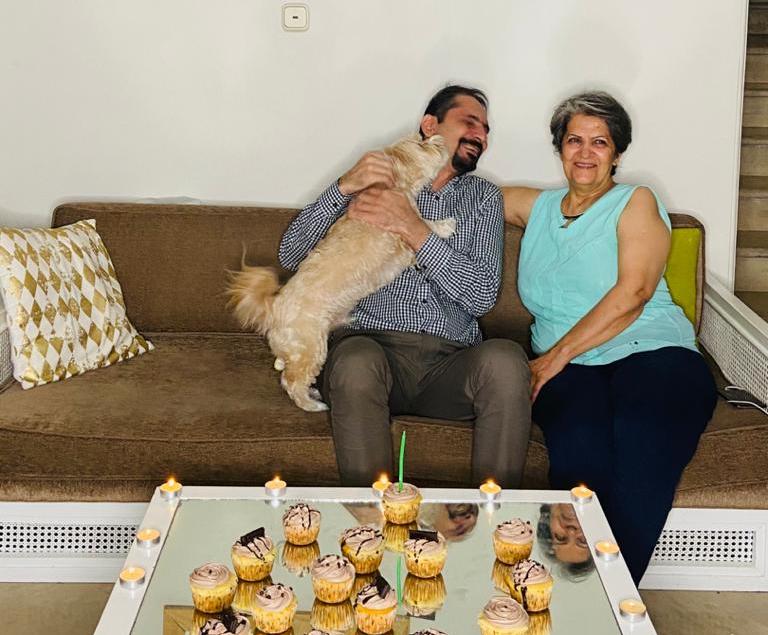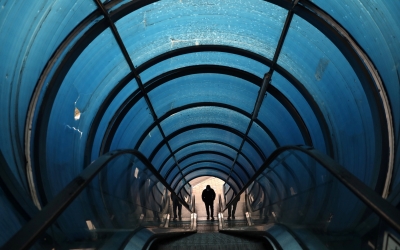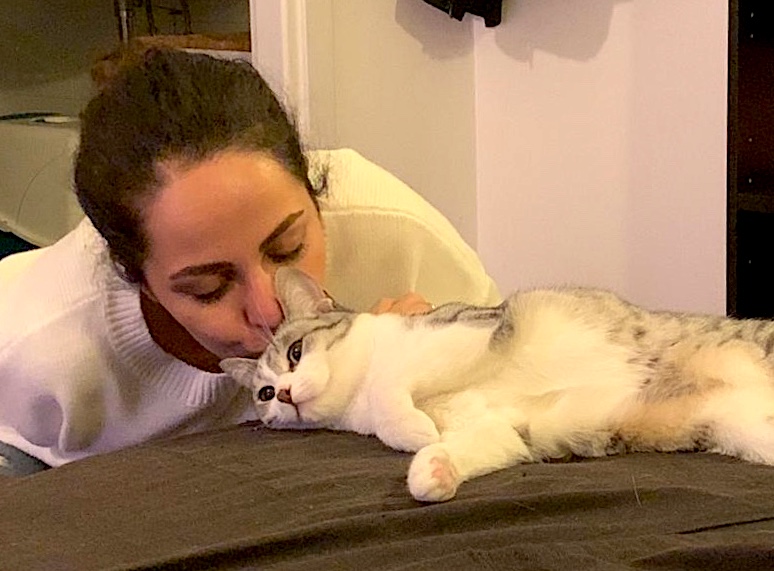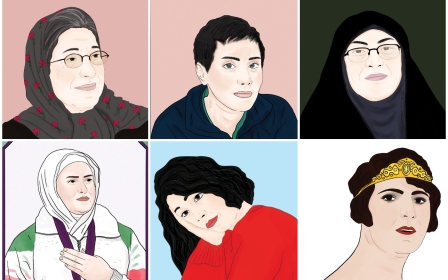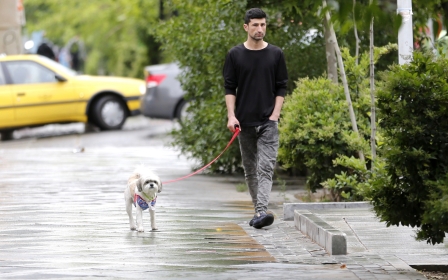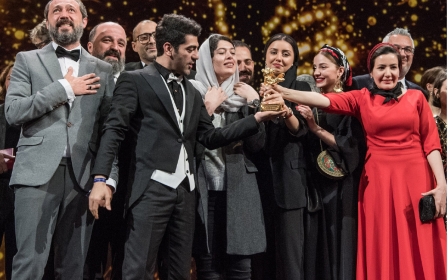Covid-19: Lonely Iranians welcome pets into homes to help cope with mental hardships
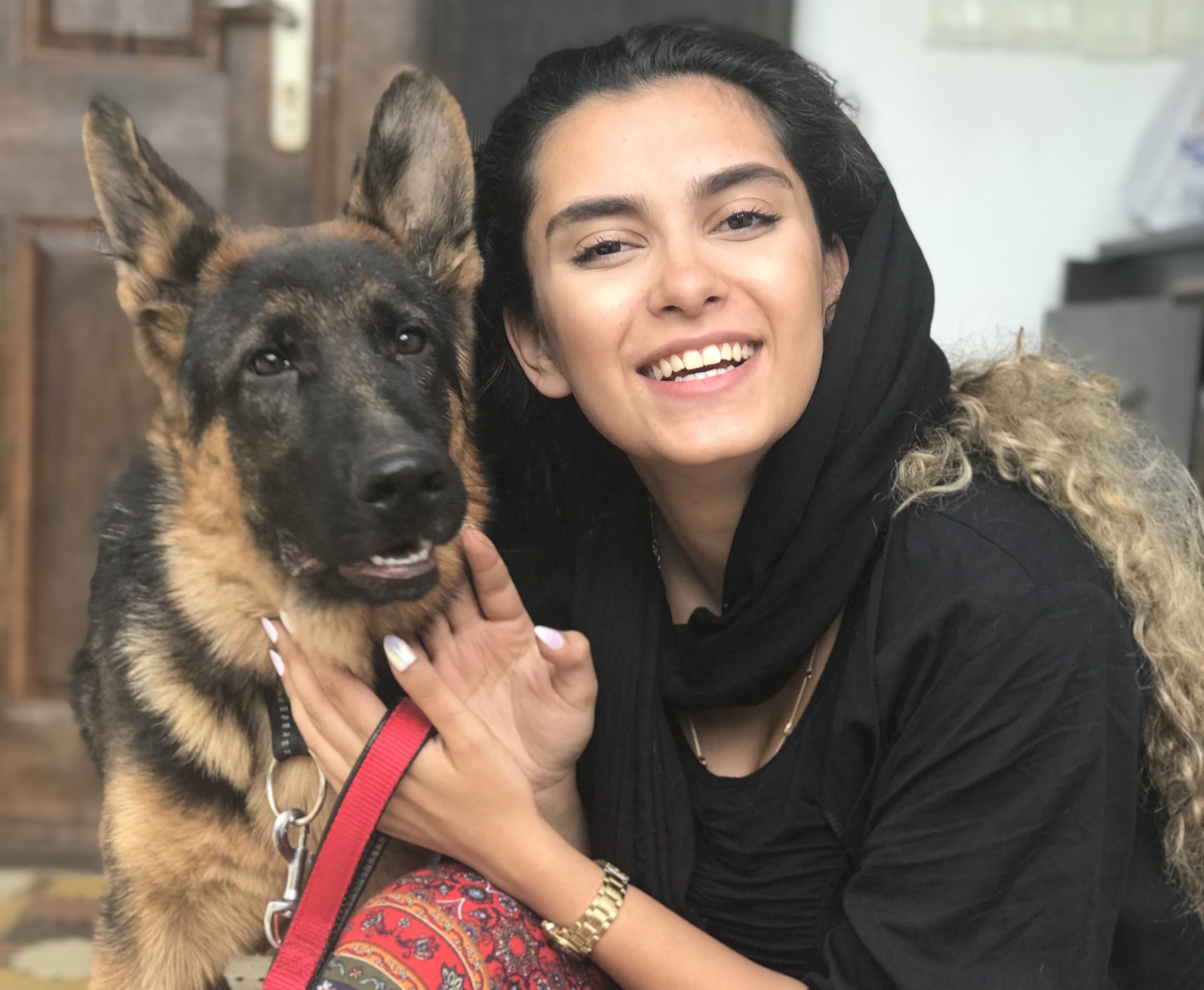
In Iran’s uphill battle against the coronavirus outbreak, an unlikely group of heroes has emerged as the saviour of many Iranians’ sanity.
They are the pets.
Dogs, cats, birds and even reptiles, animals of various sizes and temperaments have been welcomed into the homes of thousands of anxious citizens, who swear by the healing power of the pets on their mental health amid a global pandemic that has no end in sight.
'Fandogh’s companionship has put an end to my loneliness'
- Niyusha, 25, on her puppy
Twenty-five-year-old Niyusha got her first pet three months ago - a poodle puppy she named Fandogh, a popular endearment in Iran.
She told Middle East Eye that prior to the adoption, she had very little interaction with animals, let alone owning one.
New MEE newsletter: Jerusalem Dispatch
Sign up to get the latest insights and analysis on Israel-Palestine, alongside Turkey Unpacked and other MEE newsletters
“Although some of my friends kept dogs or cats, I never had to look after them. But when the pandemic arrived and the subsequent restrictions came into force, a friend whose dog had just delivered a litter of puppies offered me one to take care of.”
Despite having doubts initially, Niyusha was now “absolutely happy” with her decision to adopt a pet.
“Fandogh’s companionship has put an end to my loneliness.
“I was tired of being home alone, no fun, no travels, and not a single pleasurable moment. But since Fandogh came to our house, I cope better with the challenges of the pandemic.”
Pet therapy
Niyusha is just one of many Iranians who have turned to pets to get through life’s hardships. The strict restrictions on physical contacts resulting from the Covid-19 outbreak have forced people into solitary confinement in their own homes.
Under Islamic tradition, dogs are considered “unclean”, and for decades the Islamic Republic has viewed pet ownership as a “western influence” not to be endorsed or encouraged.
'(Some of my relatives) don’t want to say prayers with a dog around. They say the dog has defiled our house'
- Negin, pet owner
But Iranian attitudes have been shifting in favour of domestic animals. These days, keeping pets is not just a trend among middle-class families living in small flats in the cities; even older generations have begun to rely on pets as a coping mechanism.
Recently, Milad bought a pet bird to keep his parents company despite their objection. He said he never had a pet growing up because both of his parents were strongly against the idea of keeping one in their family home.
“But as the isolation and contact restrictions continued to be imposed on us, I insisted on buying a domestic canary for them,” said the 39-year-old, who is married.
Now, two months after the arrival of the bird, his parents have become accustomed to this new member of the family.
“The canary’s lovely voice is the new entertainment for my 70-year-old parents,” Milad said.
As for Behzad, a 35-year-old living in Tehran, his pet provided the therapy he needed to get through the aftermath of a relationship breakup.
“In early April, amid a new wave of coronavirus outbreak, my girlfriend and I broke up after two years together. I was feeling extremely lonely, especially when there was a travel ban in place and nowhere for entertainment. As a result, I decided to adopt a cat.
“I must admit that this cat made many of the post-relationship problems as well as the lockdown easier for me,” he told MEE.
Sociocultural paradoxes
Over the years conservative Iranian authorities have made several attempts to curb pet ownership in the country, especially that of dogs.
A senior cleric once issued a fatwa - a religious ruling - saying: “Friendship with dogs is a blind imitation of the West…. There are lots of people in the West who love their dogs more than their wives and children.”
Even though the Quran did not explicitly prohibit contact with dogs, he said, “we have lots of narrations in Islam that say dogs are unclean”.
In 2019, Tehran police chief Hassam Rahimi announced a ban on walking dogs in public - an act he said would “cause panic among citizens”. Carrying dogs in private cars was also prohibited.
Despite Rahimi’s promise of severe penalties for rule-breakers, the ban on walking dogs was loosely enforced and dog owners continued to take their pets with them wherever they went.
Meanwhile, many others still harbour a more traditional view towards pets and don’t want to be anywhere near them.
Negin, 31, told MEE that some of her religious relatives would not visit her house because she owned a puppy.
“They don’t want to say prayers with a dog around. They say the dog has defiled our house.”
In general, the Iranian society today is more open and friendly towards pets, said Sahar, who has been looking after two dogs for about a decade.
He told MEE that only a few years ago, when he was walking his dogs, people would give him strange looks and even walk across the road in fear of being attacked - “even though my dogs were very placid,” recounted the 30-year-old.
“Many people are now treating dogs and cats in public more gently. While it’s not absolutely true about everyone, I feel that the situation is getting better and better.”
Iran's new identity
This changing attitude towards pets is part of Iran’s “modernisation" process, according to Fahimeh Miri, an experienced journalist.
“As human beings we have a hidden desire to ‘love’, to bestow our attention on or take care of someone.
“As society goes through modernisation and people experience more problems in relationships, their willingness to dedicate this love to an animal flourishes in Iranian society,” she told MEE.
The pandemic has intensified people’s desire for affection as they seek ways to fight off depression and loneliness, and hence contributed to the recent increase in pet adoption, she added.
Adoption comes with responsibilities, and in Iran, that sometimes means finding them medical treatments scarcely available due to sanctions imposed by the United States.
"A few months ago my dog had an eye problem and we couldn’t find a veterinarian in Iran who specialised in optometry, and due to the sanctions it was hard to find medicine for him. Even if you could find the drug, you could not afford it. It was extremely expensive,” said 24-year-old Kimia.
The reward of having her dog far outweighs the trouble though, she told MEE.
Iranian society’s beliefs and social patterns have been changing, said psychologist Farnoush Khaledi.
“One of the main reasons for keeping pets in Iran is that people no longer believe in the old cultural, religious or doctrinal taboos as unalterable Lord’s words. This shift towards deconstructing old taboos signals a transformation of the Iranian identity - from the traditional to the new,” she explained.
While the transformation is only in its “adolescent stage”, a pattern has emerged which stands up against old structures and absorbs components from a wider world, said Khaledi.
“The new identity is still being shaped and formed, and it will have to go through more trials and errors until it’s fully matured.”
This article is available in French on Middle East Eye French edition.
Middle East Eye delivers independent and unrivalled coverage and analysis of the Middle East, North Africa and beyond. To learn more about republishing this content and the associated fees, please fill out this form. More about MEE can be found here.


